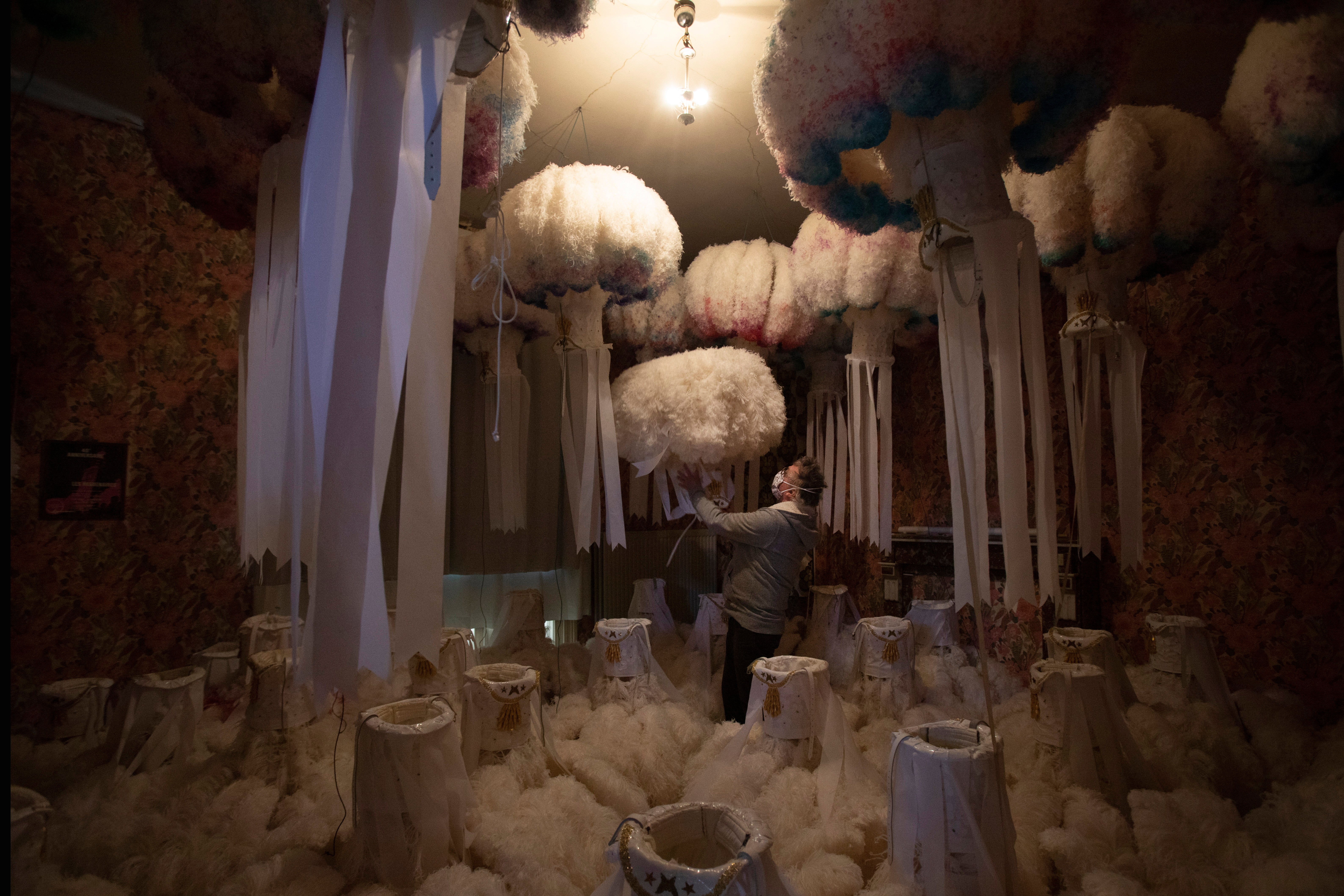With carnival canceled, sadness takes over Belgian town
In normal times, the small town of Binche in southern Belgium would be bursting with excitement

In normal times, the small town of Binche in southern Belgium would be bursting with excitement.
It's this time of the year when craftsmen put the finishing touches to the vibrant costumes ostrich-feather hats and wax mask of performers known as Gilles. The whole town braces itself for the carnival festivities that have been labeled a “Masterpiece of the Oral and Intangible Heritage of Humanity” by UNESCO.
Not this year, though.
The coronavirus has brought to a sudden halt one of Europe’s oldest surviving street carnivals.
On a frosty morning this week, downtown streets were empty of the sound of drum rehearsals, and cafes remained shut amid strict anti-coronavirus measures implemented across Belgium.
“All the inhabitants in Binche live and take part in the carnival," said Daniel Pourbaix, who heads the association for the protection of Binche folklore. “So when there is no carnival, everyone is sad."
The carnival has roots dating back to the Middle Ages and normally draws thousands of aficionados. It takes place during the three days before Lent, reaching its climax on Mardi Gras, when the Gilles characters with their green spectacles and thin moustaches dance to the sound of brass and clarinets.
Rather than organizing a cut-rate festival this year, organizers have opted for its cancellation. But the Gilles will be present all the same — floating in the air as their gigantic heads have been deployed on poles across the city.
To warm hearts, Binche residents have also been invited to set up mimosa displays close to their windows — the yellow flower is a symbol of the carnival — and to wear Gilles face masks.
In addition to the sadness at the cancellation, the economic impact will be difficult to swallow for all the craftsmen who rely on the carnival season for their revenues. To help artisans like Karl Kersten go though the crisis, Binche's folklore association has launched a solidarity fund.
Kersten, a fourth-generation tailor of Gilles costumes, spends all year preparing for the carnival season and rents about 1,000 costumes during the festivities. This year, his shelves are full.
“It’s quite simple, this year we won’t get anything. A big zero,” he said. “Hopefully, with the vaccines, we will be able to resume our activities next year."
Bookmark popover
Removed from bookmarks